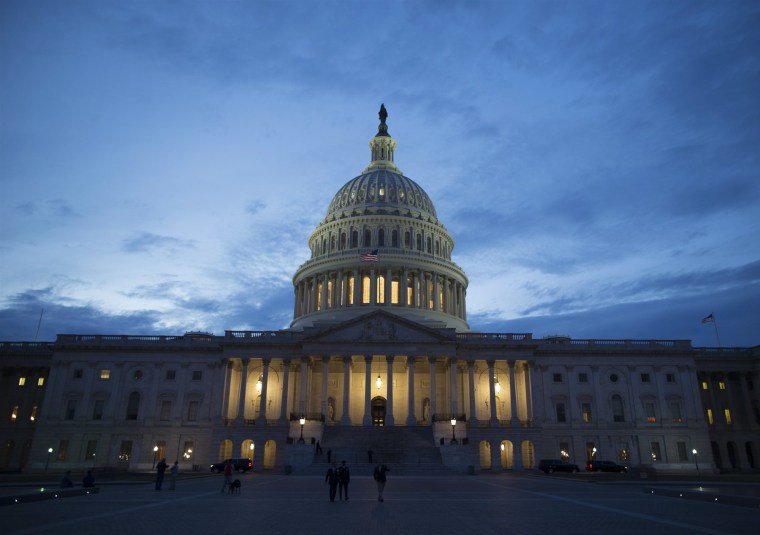In early August, as Senate Republicans openly discussed the possibility of rushing through a Supreme Court nominee, Sen. Tim Kaine (D-Va.) sent a shot across the GOP's bow.
"If they show that they're unwilling to respect precedent, rules and history, then they can't feign surprise when others talk about using a statutory option that we have that's fully constitutional in our availability," Kaine told NBC News, referring to Senate Republicans. "I don't want to do that. But if they act in such a way, they may push it to an inevitability."
At the time, the Virginian was addressing a hypothetical. Now, the circumstances are quite real, and as Politico noted, "The Senate is moving toward a historic showdown that may reverberate for years to come."
Even more than the 2018 crisis surrounding Brett Kavanaugh’s nomination to the high court, Democrats say the fallout from Senate Majority Leader Mitch McConnell’s effort to quickly push through a new justice -- who could then be confirmed this year by the Senate -- could lead to permanent consequences for the institution.
Senate Minority Leader Chuck Schumer (D-N.Y.) declared over the weekend, “Let me be clear: if Leader McConnell and Senate Republicans move forward with this, then nothing is off the table for next year. Nothing is off the table.”
As for what might be on the table, there is no procedural mechanism in place that would empower Democrats to block a Trump nominee, but the party has some dramatic options available in the coming months -- especially if voters elect a Democratic White House and Democratic Congress.
House Speaker Nancy Pelosi (D-Calif.) mentioned yesterday, for example, that "some have mentioned the possibility" of moving to impeach Trump or Attorney General Bill Barr "as a way of stalling and preventing the Senate from acting on this nomination."
I'm skeptical this would work, since the Senate could dismiss the charges without a trial, though I do appreciate outside-the-box thinking.
Sen. Ed Markey (D-Mass.) tweeted, meanwhile, that his party must be prepared to "abolish the filibuster and expand the Supreme Court." House Judiciary Committee Chairman Jerry Nadler (D-N.Y.) issued a similar statement over the weekend.
Circling back to our earlier coverage, at issue is something popularly known as "court packing." In practice, the idea is for Congress to expand the number of seats on the Supreme Court as part of an overtly political effort to alter the bench's ideological makeup.
It is, to be sure, a radical step -- but arguably no more radical than Republicans effectively stealing a seat in 2016, and then abandoning their own stated principles to further hijack the high court in 2020.
What's more, note that the idea has a pedigree. The New Republic published a piece a while back noting what transpired after the presidential election of 1800: "The outgoing Federalist Party ... reduced the size of the Court from six to five to keep Jefferson from filling an anticipated vacancy. Once Jefferson's Democratic-Republican Party was firmly in power, they increased the size back to six justices, then to seven, to allow Jefferson to appoint new justices."
More than a half-century later, ahead of the Civil War, Abraham Lincoln and congressional Republicans expanded the Supreme Court to 10 justices in order to help protect the White House's agenda.
Such a step would, of course, require Democrats to do away with the legislative filibuster, but there's reason to believe this is on the table, too.
Given the extent of the contemporary GOP's abuses, don't be surprised if this talk gets louder in the near future.

